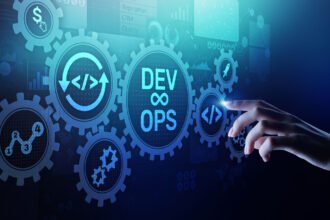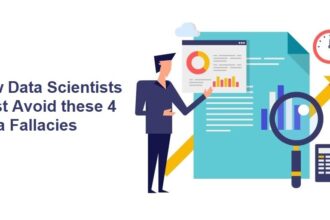The future of data science jobs continues to be brighter than ever in 2020. Why? According to Glassdoor’s list of Best Jobs in America for the past four years, data scientist topped in terms of job demand, job satisfaction, and pay with an average base salary of more than $100,000 per year.
So, who are the present-day data scientists and what does it take to become one? Our friends at 365 Data Science used public data on of 1,001 LinkedIn professionals including junior, experts, and senior data scientists to answer these questions.
40% of the surveyed data scientists are currently employed in the United States; 30% of the sample is based in the UK; 15% work in India; and 15% come from a collection of other countries.
50% of the cohort is currently employed at a Fortune 500 company, while the remaining 50% work in a non-ranked company.
So, let’s take a look at what the data has to say.
Overview
According to the research, there are twice as many male data scientists than there are female. Usually, they speak two languages – most often English and their mother tongue; four out of five have at least Master’s Degree; and it takes 8.5 years of overall work experience to become a data scientist. Nine out of ten use Python or R and about 80% of the cohort holds at least a Master’s degree. Furthermore, the typical data scientist in 2020 has held this prestigious title for an average of 3.5 years.

Level of Education
Education is one of the 3 main components of most resumes. That makes perfect sense, as educational background demonstrates your expertise to your future employers, especially when you lack years of professional experience.
According to our data, the typical data scientist in 2020 holds a Bachelor (13%), a Master’s degree (56%), or a Ph.D. (27%) as their highest academic qualification. Yes, data science requires an advanced level of expertise. So, despite the fact that the data science field welcomes candidates with a graduate degree, a Master’s will definitely increase your chances of success. What about the Ph.D. degree? Well, judging by the numbers, it’s more of a bonus than a prerequisite. That explains why its percentage has remained approximately the same, based on the research in the past 3 years

Previous Work Experience
Based on the sample, more than half of the currently employed data scientists were already on the job. 11% started as a data analyst. The rest came from Academia (8.2%), started as an Intern (7%), an IT (2.4%), a Consulatant (3.8%) or an Engineer (2.7%). And 12.5% transferred from other lines of employment.
Academic Degree
Data showed that Data Science and Analysis, comprising 21% of data scientists, is the degree that’s most likely to get you into data science in 2020, followed by the previous leader Computer Science (18.3%) and the traditional Statistics &Mathematics (16.3%).

It’s true that data scientists come from various backgrounds. However, no single degree can prepare a person for a real job in data science.
That’s why, it shouldn’t come as a surprise that data scientists rely heavily on self-preparation. In fact, 41% of the sample included an online course in their LinkedIn profile. And that’s remained a consistent trend over the past two years (40% in 2018 and 43% in 2019).
Coding Languages
74% of the cohort uses Python, 56% are proficient in R, and 51% have good command of SQL. In terms of popuarity, SQL has grown by 40% since 2019 (36%), thus moving closer to R.
When it comes to Fortune 500 companies and programming languages, the overall usage of Python and R shows that large companies are rethinking the organization of their data. Although open source frameworks can be unorganized, unlike Matlab and C, more and more companies nowadays are turning to the user-friendly Python and R.
What about coding languages and country of employment? In 2020, Python is the undisputed king of coding language in all countries reflected in the survey. SQL seems unconcerned by Python’s reign and has even grown in popularity compared to previous years.

Conclusion
Data speaks louder than words. And, according to the numbers, data science is thriving and continues to evolve. What’s more, in 2020, universities are starting to catch up with the growing demand by expanding their scope of education and relevant degrees.
However, you never know what the future has in store for data science in the next 2-5 years. So, if you want to stay up-to-date with the latest developments, you can follow the 365 Data Science blog for more career resources.









